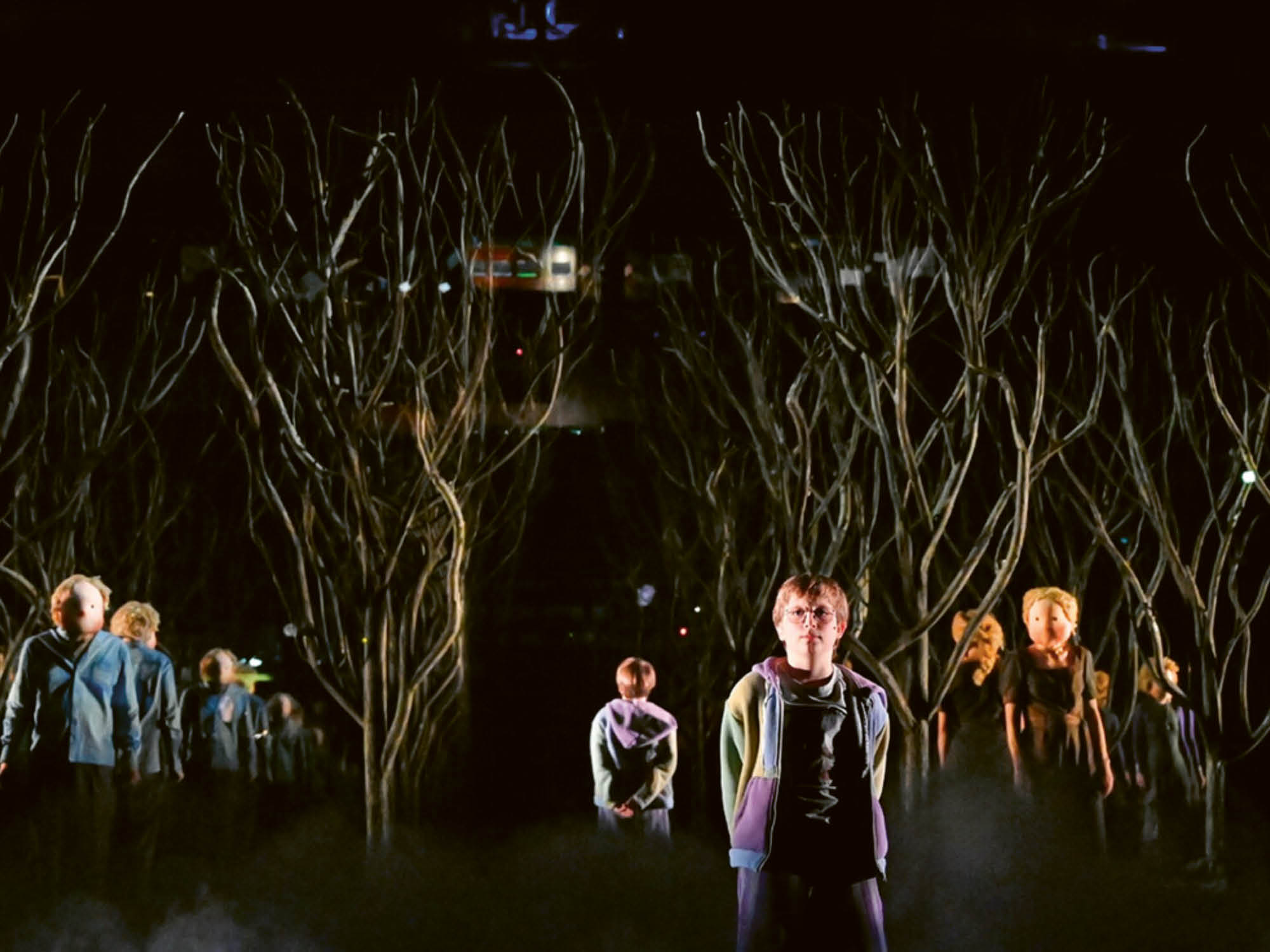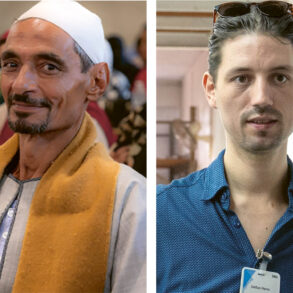Schauspiel Stuttgart is showing the new production, The Education of Rudolf Steiner, by the British-Irish theater collective Dead Centre. Tickets are still available through mid-December.
The play immediately gets to the heart of the matter: a child plays the leading role, weaving the red thread throughout the hour-and-a-half evening and setting the tone. We’re reminded of Saint-Exupéry’s The Little Prince or Michael Ende’s Momo. Right from the start, the whole auditorium enters into a spontaneous dialog with this young boy, who, with astounding confidence, directly addresses the numerous individuals in the audience. Rarely in all my theater experiences have I become part of such a nuanced and complex event so quickly and in such a natural and captivating way.
Apart from a few lapses into the crass, seemingly indispensable, conventional clichés about Waldorf schools and anthroposophy, the evening is primarily defined by well-performed theatrical devices written and directed by Dead Centre (Ben Kidd, Bush Moukarzel). The backdrop to the stage is a room-sized mirror, in which the entire audience sees itself reflected before the performance even begins. Some folks wave at their reflection and flash photos with their cell phones. Throughout the play, this mirrored surface repeatedly becomes transparent, revealing another level of reality behind it that is causally linked to the one in front. This fantasy world or spirit world is a concrete part of the dramatic events and makes it vividly clear what this child is experiencing or how he perceives another level of reality behind the physical reality.
The development of the child and Rudolf Steiner’s biography are merged in impressive sequences. Adulthood is represented by two couples, one childless and the other the parents of the young lead, Flinn. The two couples exemplify our current generation of parents. Everyone in the audience can feel their own life situation validated and reflected at some point in some kind of typical situation. That’s theater at its best! The evening is full of gripping theatrical moments, artistically adept, sometimes cheerful, sometimes funny, sometimes dramatic, sometimes tragic. Goethe’s Faust is often and aptly quoted; Shakespeare is always somehow present behind the scenes. Between stage and audience, the atmosphere is one of sympathetic warmth, and the audience’s heartfelt applause as the curtain closes makes this abundantly clear. An amazing event!
Through Flinn, we gradually learn what is behind the word an-thro-po-so-phie, not in a flippant or cynical way, but with a childlike seriousness and, above all, in clarifying pictures that can say far more and be more comprehensive than some verbose, high-brow babble. The result is a real evening of theater using the finest means typical of the circus. The audience is addressed on every level—physical, soul, and spirit—in equal measure; the imaginative virtuosity of the presentation grabs one mentally, emotionally, and also tangibly, dynamically. The sold-out house, full of anticipation, is first asked: Why do you come here? Why do you keep coming here? Why do you go to the theater, actually? Why do you go to see one play or another, and some even more than once? After an hour and a half, one is able to understand “why” much more! These kinds of impressionable pictures allow us to understand a whole complex of ideas instantaneously.
The biographical moments never drift off into historical gossip; the contact remains in the here and now, addresses us directly, and takes us into the future. The founding of the Waldorf School takes place in the presence of Emil Molt and illuminates its central concerns in revealing key sentences. If the Waldorf School didn’t already exist, we would have to get to work on opening one right away!
The motif of fire is omnipresent throughout the play, exposed at the beginning by a theatrical cigarette that the child lights before the public and casually comments on. In the final scene, this develops into the burning of the First Goetheanum and a picture of a world on fire with problems and conflicts. A faint hint of Wagner’s Götterdämmerung is not far off. Mighty pictures are evoked and ignited. Other dimensions emerge and are left not fully formulated. There is plenty of food for thought, thought-provoking pluralism, multiple perspectives, rethinking, and new approaches—a departure from the one-dimensional mainstream.
It was certainly a rewarding evening at the theater. A kind of compliment to the great ambition of the school project, school issue, and school venture! Bottom line: it is relevant.
Event Die Erziehung des Rudolf Steiner [The Education of Rudolf Steiner]
Translation Joshua Kelberman
Image Schauspiel Stuttgart









